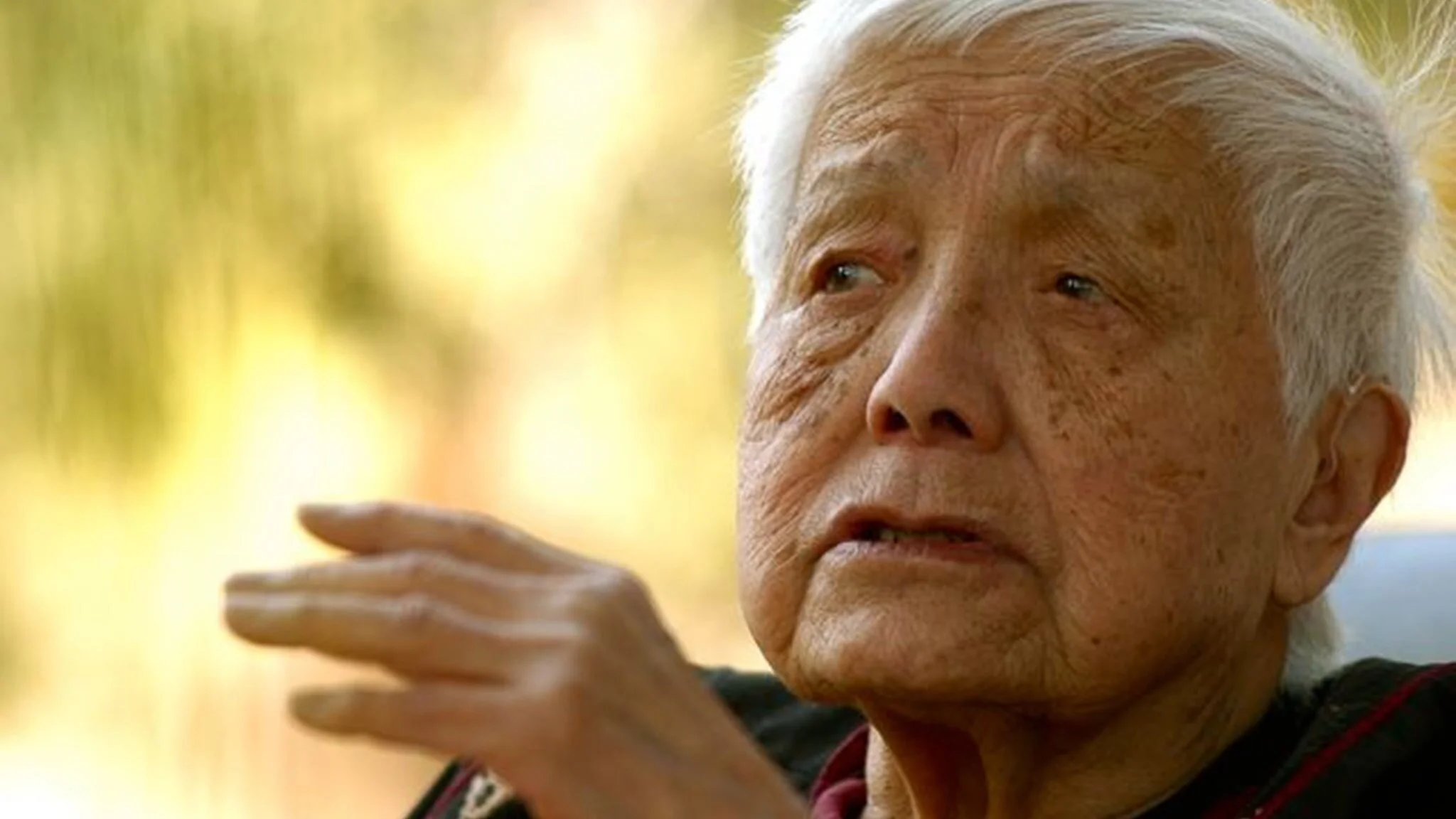
Socialism: Its Victory Must Be Labor’s Goal (1943)
Written by Grace Lee Boggs (under the pen name Ruth Stone) in 1943.
American industry has come out with its manifesto.
The American bosses are fighting for capitalism and they state it “without apology.” Gathering into their ranks all those labor “leaders” who see no alternative to the profit system, they seek to delude workers into the belief that swelling profits is the way to bring heaven on earth t0 labor and not merely to business.
Who Should Get Labor’s Product?
Mr. Johnston, citing William Green for his authority, demands for the bosses a “fair and just return upon their investments.” Labor, says he, “cannot get anywhere by starving capital.” But why should the bosses get a return on “THEIR capital”? What do they mean when they say it’s “theirs”?
Such capital is “theirs” only by virtue of property “rights” – “rights” written into law by themselves to maintain the fiction of justice for their confiscation of the produce of labor. The source of such capital is no mystery. Capital represents the stored-up labor of millions of workers accumulated in the hands of the bosses. Nor is the role of such capital any. mystery. “Capital,” the great teacher of socialism, Karl Marx, said, “is dead labor that vampire-like only lives by sucking living labor and lives the more, the more labor it sucks.”
Mr. Johnston would have us believe that the bosses should not only continue to own the already-amassed labor which they have confiscated. With the greed of every capitalist, he also believed that the additional labor daily stored up in machines by the sweat and toil of the workers should “return” to the bosses.
Once workers realize, however, that the “return” should be to them instead of to the bosses, they will have begun to see the socialist solution.
Mr. Johnston warns business that it “can get nowhere by starving labor. When it starves labor, it is starving the purchasers of its own product” (emphasis mine – R.S.). How smugly he takes for granted that the product belongs to the boss. And how cleverly he ignores the fact that capitalism, by its very nature, moves toward an actual curtailment of the consuming power of the masses at the same time that it tinfolds limitless potentialities for consumption.
It is the very essence of capitalism to keep labor at a minimum point, just sufficiently above the starving point so that it can continue to produce – never enough above this point so that the worker could save for a period of not working. The boss has no other interest in the worker. Meanwhile, however, all the accumulated labor of the workers, stored up in machines, becomes ever more potentially productive of goods which, utilised for the workers, would unfold possibilities of unlimited development.
But capitalism, no matter how it plans and hopes and prays, would never actually be able to do more than drive the worker to the bedrock of subsistence – although there is plenty to provide a featherbed of luxury for all.
Only socialism, where the stored-up labor is utilized for the social good, can realize the potentialities of human productivity and spiritual development. Only when accumulated labor belongs to those who produce it – to the worker who turns the wheels, instead of to the capitalist who clips the coupons – will men parallel in their human daily life the physical grandeur of a Boulder Dam.
Labor Has No Stake In Capitalism
Mr. Johnston would also have us believe that government bureaucracy is the only alternative to capitalism. Because the government occasionally interferes with individualist excesses said profiteering (e.g., ceiling prices to keep the sky from being the limit, indictment of Anaconda, etc.), the bosses are often annoyed by its actions and forget that these annoyances protect the profit system by postponing mass indignation at its root evils. And so, Johnston would have labor believe that the government is a third party, standing above the class conflict and tending toward totalitarian rule in the interests of neither the bosses nor the worker.
What Johnston refuses to admit is that the government, while the bosses own the means of production, can only rule in the interests of the bosses’ system. Likewise, if the workers owned the means of production, the government would rule in their interests.
Johnston urges the cooperation of labor and business, but claims that by cooperation he does not mean “surrender, either by business to labor or by labor to business.” However, as has been so clearly illustrated in Vichy France, cooperation with a dominant group can only be collaboration in its interests.
With this in mind, workers should close ranks and cooperate only with its own brothers to achieve socialism, spurning the pleas of the Johnstons and the Kaisers to take out a stake in capitalism.
— Grace Lee Boggs (as Ruth Stone)
About this essay:
From Labor Action, Vol. 7 No. 9, 1 March 1943, p. 4.
Transcribed & marked up by Einde O’Callaghan for the Encyclopaedia of Trotskyism On-Line (ETOL)
Back to Grace-Lee Boggs
Back to Table of contents

